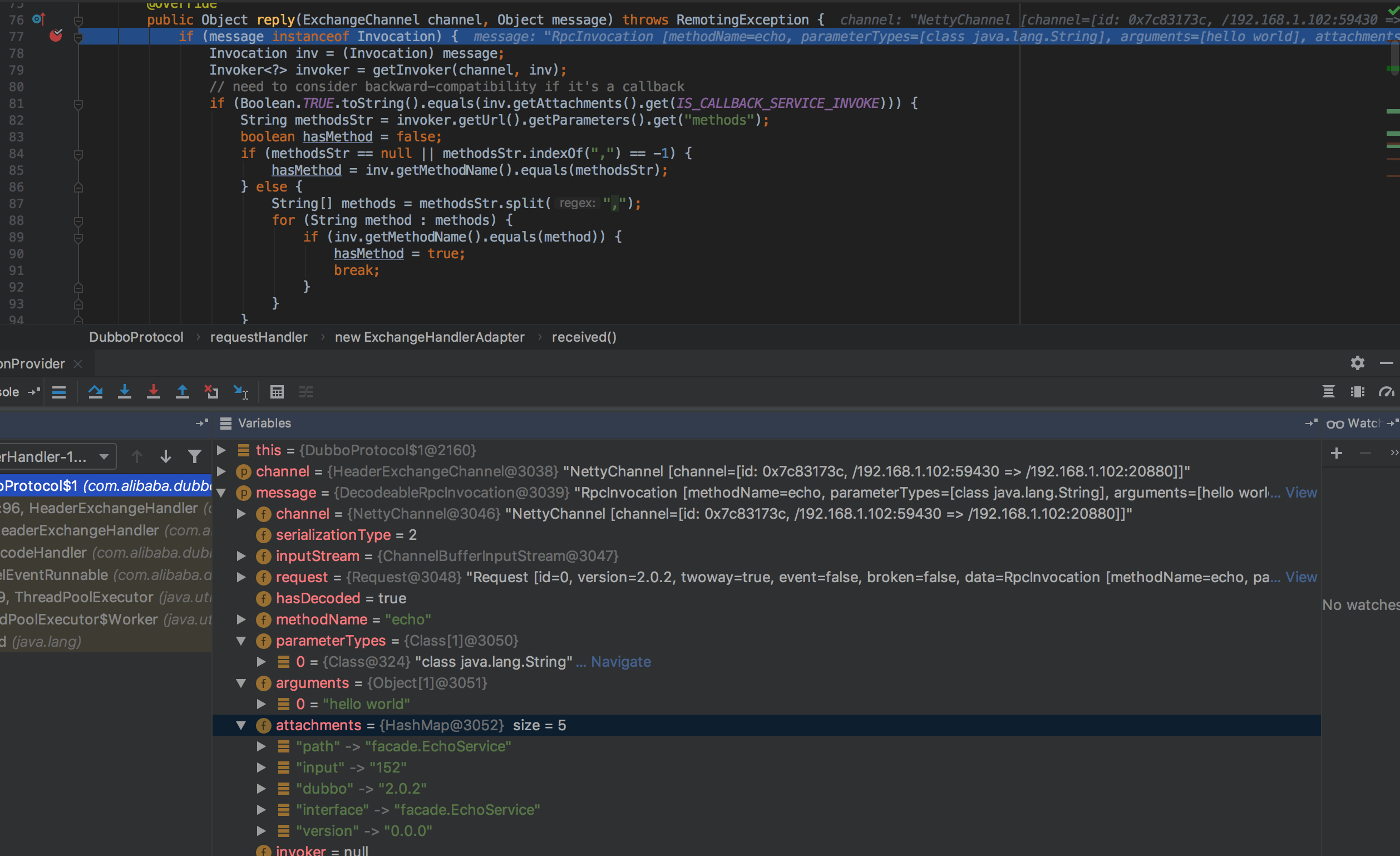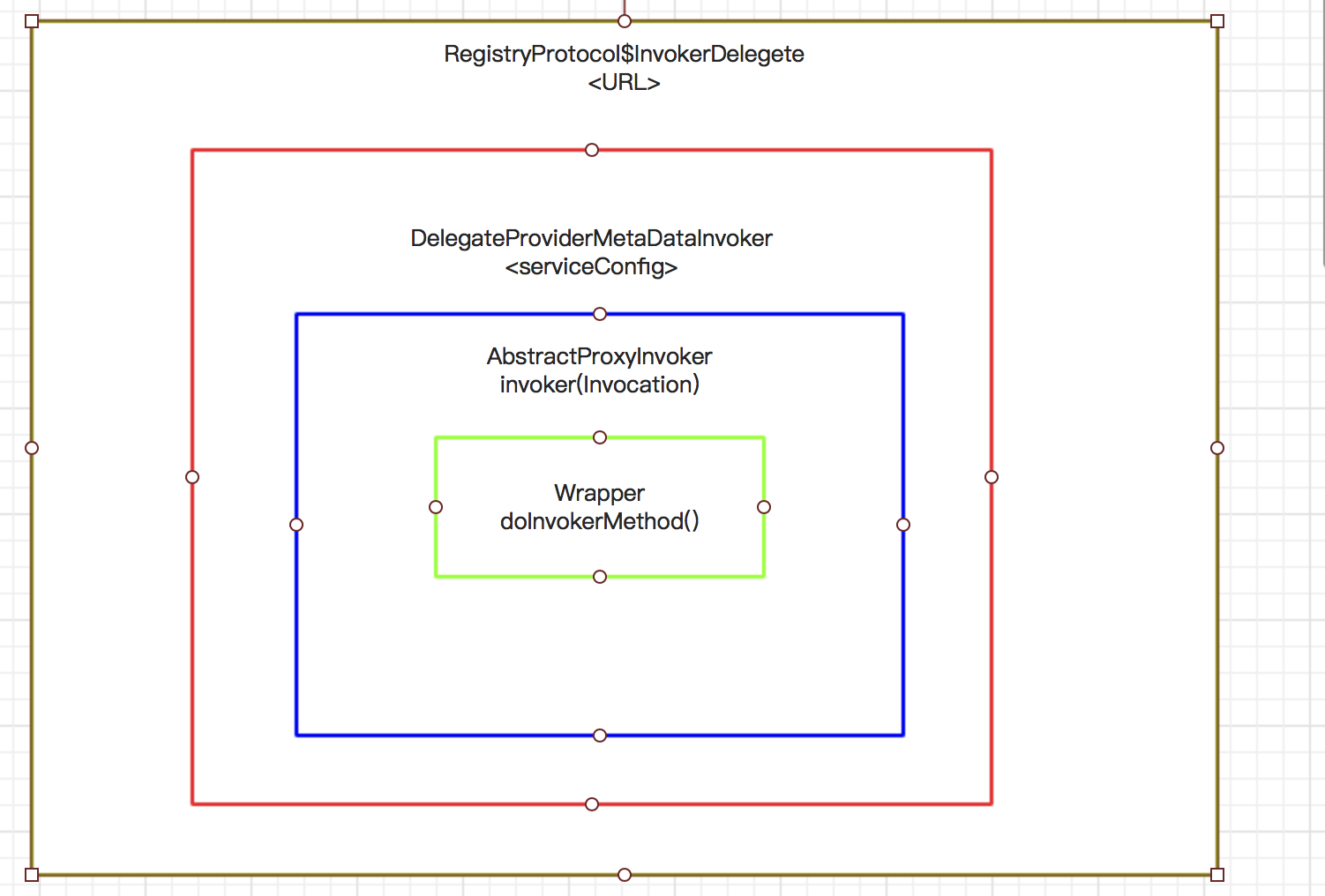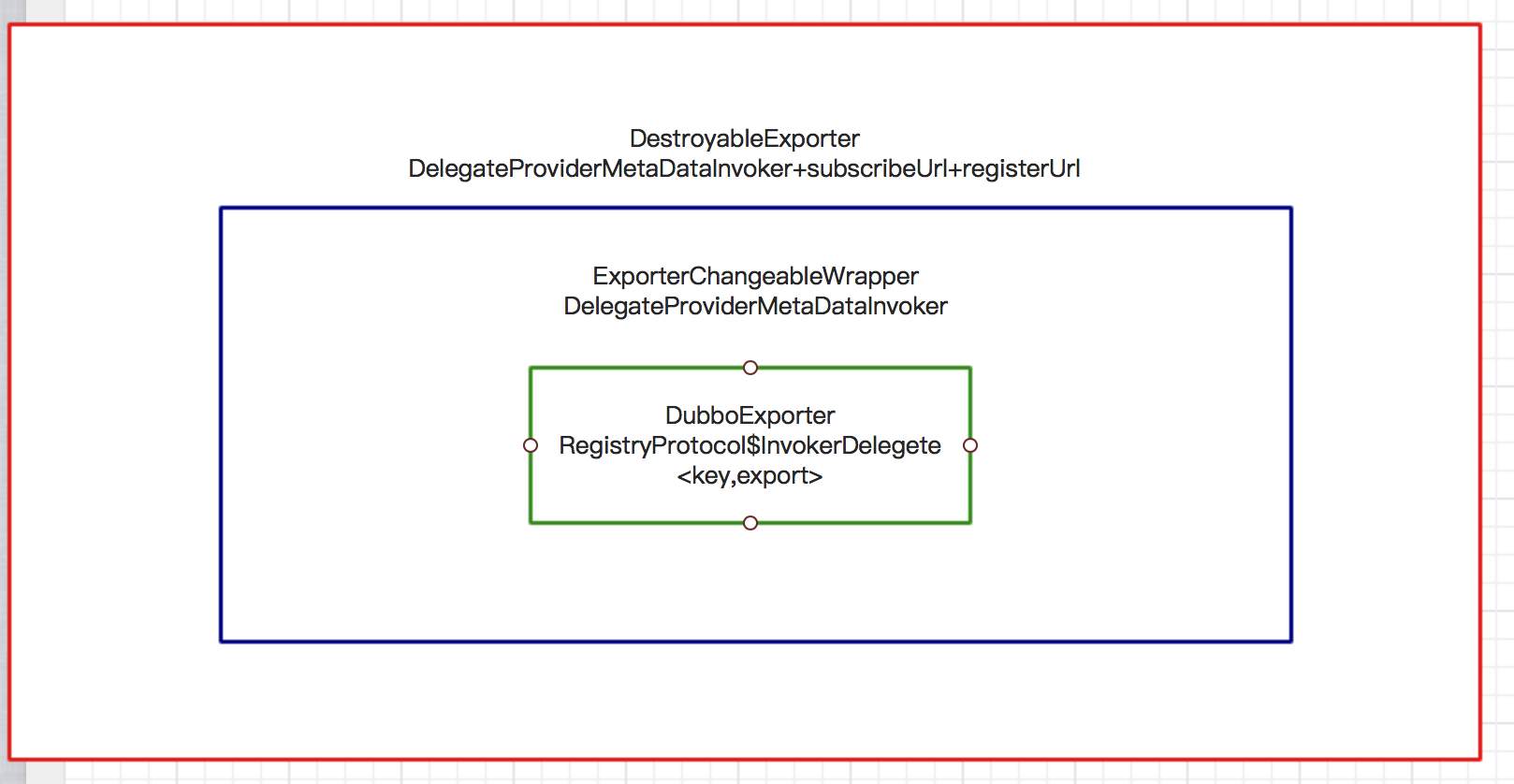记得服务暴露的时候createServer()里 server = Exchangers.bind(url, requestHandler);
requestHandler在DubboProtocol里的实现如下:
private ExchangeHandler requestHandler = new ExchangeHandlerAdapter() { @Override public Object reply(ExchangeChannel channel, Object message) throws RemotingException { if (message instanceof Invocation) { Invocation inv = (Invocation) message; Invoker<?> invoker = getInvoker(channel, inv); // need to consider backward-compatibility if it's a callback if (Boolean.TRUE.toString().equals(inv.getAttachments().get(IS_CALLBACK_SERVICE_INVOKE))) { String methodsStr = invoker.getUrl().getParameters().get("methods"); boolean hasMethod = false; if (methodsStr == null || methodsStr.indexOf(",") == -1) { hasMethod = inv.getMethodName().equals(methodsStr); } else { String[] methods = methodsStr.split(","); for (String method : methods) { if (inv.getMethodName().equals(method)) { hasMethod = true; break; } } } if (!hasMethod) { logger.warn(new IllegalStateException("The methodName " + inv.getMethodName() + " not found in callback service interface ,invoke will be ignored." + " please update the api interface. url is:" + invoker.getUrl()) + " ,invocation is :" + inv); return null; } } RpcContext.getContext().setRemoteAddress(channel.getRemoteAddress()); return invoker.invoke(inv); } throw new RemotingException(channel, "Unsupported request: " + (message == null ? null : (message.getClass().getName() + ": " + message)) + ", channel: consumer: " + channel.getRemoteAddress() + " --> provider: " + channel.getLocalAddress()); }

其中getInvoker()会去AbstractProtocol里的exporterMap通过serviceKey(facade.EchoService:20880)得到DubboExporter实例,最后得到RegistryProtocol$InvokerDelegete实例返回,最后调用inoker()方法,总结了下各invoker和export的持有关系如下:

